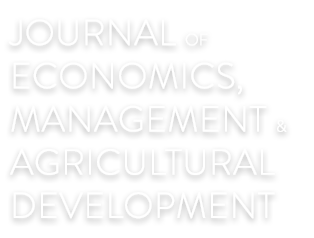Authors
ABSTRACT
Rice production contributes a significant amount of greenhouse gases (GHG) from agriculture. The study analyzes policy options for water management in the national irrigation system for reducing GHG emissions from rice cultivation in Division 1 of the Upper Pampanga River Integrated Irrigation System (UPRIIS) in Nueva Ecija, Philippines. These options include policies associated with continuous flooding, single drainage, and multiple drainage of rice fields. The total economic values were calculated by estimating the cost avoided due to GHG reduction and water savings, and estimating the welfare effect.
The per season estimated economic values of the potential GHG emission reduction and value of water savings in the study area are: PhP 339 million (M) for shifting from continuous flooding to midseason (single) drainage and PhP 652M for shifting to alternate wetting and drying (AWD) or multiple drainage. Using choice experiment, farmer’s willingness to pay for a policy change for single drainage is estimated at PhP 5,518/ha and PhP 6,774/ha for multiple drainage, or a total welfare effect of PhP 102M and PhP 125M, respectively. Aggregating these values results in a gross benefit of PhP 441M for midseason drainage and PhP 777M for AWD. The net present values (NVP) of net benefits from implementing the policies are both positive, although NPV is higher for the policy on multiple drainage.

